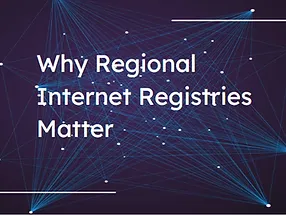Table of Contents
ToggleCore Concept: IP reputation shows how trustworthy an IP address is. It is based on how the IP address has been used before. It can change how well emails are delivered and how safe systems are.
Practical Impact: A good IP reputation helps email campaigns work better and keeps systems safe from online threats. A bad IP reputation can lead to being blocked.
Introduction to IP reputation
Today, many businesses depend a lot on online communication. Because of this, IP reputation has become very important for sending emails and keeping systems safe. But what is IP reputation? It is a score that shows how much people can trust an IP address. This score is based on what the IP address has done in the past. It helps decide if emails from that IP will go to the inbox or get marked as spam. It also helps protect networks from harmful users.
IP reputation works like a credit score, but for the internet. Just like a bank checks your credit before giving you a loan, Internet Service Providers (ISPs) and security systems check an IP’s reputation to see if they should trust it. A high score means the IP is trusted. This makes it easier for emails to be delivered and for network requests to go through. A low score means emails may go to spam, access may be blocked, or the IP may be blacklisted. This can cause big problems for a business.
More companies now use cloud services, share IP addresses, and send lots of emails. Because of this, knowing about IP reputation and how to take care of it is more important than before. This article will explain what IP reputation is, how it is scored, why it matters, and how companies can keep a good reputation online. We will look at ideas from experts and trusted sources to make this topic easier to understand.
What is IP reputation?
IP reputation is a trust score given to an IP address based on what it did before. NordVPN says it helps stop spam, fraud, and online attacks by looking at how emails are sent, how often people say messages are spam, and if the IP is tied to bad actions. This score helps internet providers, email services, and security tools choose if they should let messages from that IP through or block them.
This idea is very important in email marketing. If an IP has a bad reputation, its emails may not reach people or might be blocked. In the same way, for online safety, IP reputation is a helpful tool. It finds IPs that are used for tricks, viruses, or other bad actions. Proofpoint says, “IP reputation is based on checking how the IP has acted, how it is set up, and what has happened with it in the past.”
Why IP reputation matters
IP reputation is not just a technical score. It is also a key business tool. A good IP reputation helps email delivery, makes marketing campaigns work better, and keeps cyber threats away. A bad IP reputation can stop operations, break customer trust, and cost a lot to fix.
Email deliverability
For companies that use email marketing, IP reputation decides if emails get to users. “A good IP reputation helps emails land in inboxes and not get blocked,” says Julia Gulevich, an email expert at Geminds, quoted by Proofpoint. She notes that big email services like Mailgun and MailChimp had inbox rates fall by 27.75% and 19.63% from 2024 to 2025. This drop came from tighter spam checks based on IP and domain reputation.
A bad IP reputation can make emails go to spam or bounce. This hurts marketing. MailChannels says a poor reputation means emails are more likely to fail delivery. This is a big issue for companies that send transactional emails, such as order notices or password resets. If these emails don’t arrive, users may lose trust.
Cybersecurity implications
IP reputation is also part of keeping systems safe. It helps find and block IPs linked to bad actions like phishing, malware, or DDoS attacks. “IP reputation intelligence protects users from known malware and harmful content,” says Webroot. Blocking messages from bad IPs lowers the chance of hacks or leaks.
Andrian Valeanu, who has worked in email marketing for over 20 years, says, “You need to build trust with ISPs so your emails go to the inbox,” Proofpoint. This trust also helps in cybersecurity. A clean IP reputation shows your network is safe and strong.
Business and legal ramifications
A bad IP reputation does more than harm emails. It can block websites, set off alerts, or cause legal trouble. Mystrika warns that being blacklisted can cause “technical, business, legal, and compliance issues.” So, keeping a good IP reputation must be a main task for any company.
How is IP reputation determined
IP reputation is calculated by putting together many types of data. Groups like Spamhaus use signals from different sources, public data, machine learning, rules, and human checks to study how IPs behave.
Several things are used to decide an IP’s reputation:
Email sending habits: If an IP sends many emails all at once or in strange patterns, filters may block them. Proofpoint says this is one of the main reasons scores drop.
User actions: If people don’t open or click emails, or they mark them as spam, the score goes down. Email services see this as spam-like behaviour.
Bad use: If the IP is used for phishing, malware, or in a botnet, it is marked as dangerous.
Blacklist status: If the IP is on blocklists or linked to known threats, the reputation will drop.
Email checks: Using SPF, DKIM, and DMARC can help prove that emails are real and improve reputation.
Cisco Talos gives IP scores by using threat reports, fake traps, and internet activity. It updates scores in real time. SenderScore.org shows scores from 0 to 100. A score under 70 is bad. 70–80 is average. Above 80 is good.
The challenges of shared IPs
Using shared IPs makes things harder. In cloud setups or shared email systems, many users share one IP. Beanstalk Consulting says that if one user sends spam, others on the same IP can also get blocked. This is like living in a flat where one noisy neighbour affects everyone. To stay safe when using shared IPs, companies must check their email status often. They should also follow good practices to avoid problems caused by others.
IP reputation attacks: A growing threat
An IP reputation attack is when someone tries to make an IP look untrustworthy by linking it to harmful actions. [Proofpoint](https://www.proofpoint.com/) says attackers may take control of or fake an IP to send spam, spread malware, or launch attacks. This can cause the IP to be marked as dangerous.
Common ways include:
Botnets: Many hacked devices send spam, which hurts the IP’s reputation.
IP spoofing: Attackers change the IP source to make another IP look bad.
DDoS amplification: Attackers send lots of traffic to an IP, causing alerts.
Best practices for improving IP reputation
To keep a good IP reputation, companies must act early and often. These are the top tips from experts:
Use email authentication: “Use SPF, DKIM, and DMARC to check that senders are real,” says Valeanu. These tools stop fake emails and improve inbox rates.
Keep mailing lists clean: Remove fake, old, or unused email addresses. “Clean lists get better results, improve delivery, and help campaigns,” says Valeanu.
Warm up new IPs: Start slow when sending emails from a new IP. PowerDMARC says to send fewer than 150 emails at first. Increase the number step by step and check how many reach inboxes.
Avoid big jumps in email volume: Sending too many emails suddenly from a new IP can cause blocks. lowers trust and can hurt your score.
Tools for monitoring IP reputation:Some tools help companies watch and manage their IP scores:
Talos Intelligence: Shows real-time scores using threat data.
SenderScore.org: Gives a 0–100 score based on ISP and sender data.
Barracuda Reputation System: Tracks IP records and checks their history.
MultiRBL: Combines over 40 blacklists for deep checks.
These tools show clear results, so teams can fix problems early.
The role of IP reputation in modern business
Today, with more cyber threats and strict email rules, IP reputation matters a lot. Mailchimp says the early web was full of bad activity. Now, better IP tracking can stop fake senders.
A good IP reputation means more emails arrive, users respond more, and networks stay safe. A poor score leads to money loss, trust problems, and high fix costs. Spamhaus says strong data must come from many sources and smart systems to keep up with changes.
Future trends in IP reputation management
New tech is changing how IP scores are tracked. Tools now use artificial intelligence (AI). IRONSCALES uses AI to flag strange emails. It uses past data, user input, and threat updates to check emails.
As more people use the cloud, IPs are shared. This means companies need better tools to watch changes. Beanstalk Consulting says real-time IP tools will be key for staying ahead. Tighter rules from Gmail and Yahoo now set spam rates below 0.3%. To do well, most senders must keep it under 0.02%. Companies that plan early will do better.
FAQs about IP reputation
1. What is IP reputation and why is it important?
It is a score that shows if an IP is trusted. It affects email delivery and security.
2. How can I check my IP reputation?
Use tools like Talos, SenderScore.org, or MultiRBL.
3. What causes a poor IP reputation?
It can be spam, strange sending patterns, low open rates, or bad links.
4. How long does it take to recover a bad IP reputation?
Fixes can take weeks or months. It depends on how bad it is.
5. What are the best ways to improve IP reputation?
Clean email lists. Warm up new IPs. Check reputation often.





Just want to say your article is as astounding. The clarity to your put
up is simply excellent and that i could suppose you
are an expert in this subject. Well with your permission let me to
clutch your feed to stay updated with drawing close post.
Thank you 1,000,000 and please keep up the enjoyable work.
I got this site from my friend who shared with me on the topic of this web site and now this time I am visiting this site and reading
very informative articles or reviews at this time.
Fantastic site. Plenty of useful info here. I’m sending it to a few friends ans also sharing in delicious. And naturally, thanks for your effort!
I am not rattling great with English but I come up this really easygoing to read .
You really make it appear really easy along with your presentation however I in finding this topic to be actually one thing that I believe I might by no means understand. It seems too complicated and extremely extensive for me. I am having a look ahead for your subsequent put up, I will attempt to get the hold of it!
Thanx for the effort, keep up the good work Great work, I am going to start a small Blog Engine course work using your site I hope you enjoy blogging with the popular BlogEngine.net.Thethoughts you express are really awesome. Hope you will right some more posts.
Great post. It’s very well thought out and quite informative. Stick with it.
I think this is one of the most vital info for me. And i’m glad reading your article. But want to remark on few general things, The website style is wonderful, the articles is really nice : D. Good job, cheers
Howdy! Would you mind if I share your blog with my twitter group? There’s a lot of folks that I think would really enjoy your content. Please let me know. Many thanks
Wow! I’m in awe of the author’s writing skills and talent to convey complicated concepts in a straightforward and concise manner. This article is a true gem that deserves all the accolades it can get. Thank you so much, author, for providing your expertise and giving us with such a valuable asset. I’m truly grateful!
I must admit, this post is really good. Actually, it’s one of the best I’ve seen in quite some time.
I do not even understand how I stopped up right here, however I assumed this publish used to be great. I do not recognize who you’re but definitely you are going to a well-known blogger if you are not already 😉 Cheers!
Great write-up, I am normal visitor of one’s site, maintain up the nice operate, and It is going to be a regular visitor for a lengthy time.
Good info. Lucky me I reach on your website by accident, I bookmarked it.
Hello. splendid job. I did not imagine this. This is a excellent story. Thanks!
Excellent website. Lots of helpful info here. I?m sending it to some buddies ans also sharing in delicious. And naturally, thanks to your effort!
Nice post. I was checking constantly this blog and I’m impressed! Very helpful info specifically the last part 🙂 I care for such information a lot. I was looking for this particular info for a very long time. Thank you and best of luck.
I’m still learning from you, while I’m improving myself. I certainly liked reading everything that is written on your blog.Keep the posts coming. I liked it!
good post.Never knew this, regards for letting me know.
I got what you intend, thankyou for posting.Woh I am glad to find this website through google.
This is going to help so many people.
Great post. I used to be checking continuously this blog and I’m inspired! Very useful information specially the last phase 🙂 I take care of such information much. I used to be seeking this particular information for a very lengthy time. Thanks and best of luck.